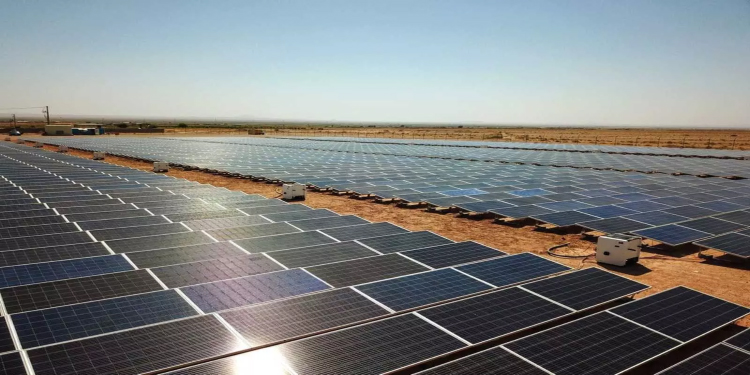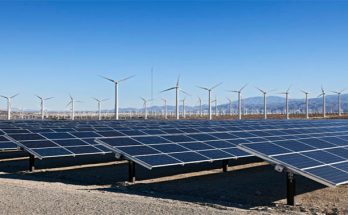 Officials of the state-owned Namibia Power Corporation (NamPower) on 29th March 2022 presided over the ground-breaking ceremony for the construction of the Khan solar photovoltaic power plant. The project is being developed by the independent power producer (IPP) Access Aussenkehr Solar One Namibia.
Officials of the state-owned Namibia Power Corporation (NamPower) on 29th March 2022 presided over the ground-breaking ceremony for the construction of the Khan solar photovoltaic power plant. The project is being developed by the independent power producer (IPP) Access Aussenkehr Solar One Namibia.
This is it. Work has started on the Khan solar project site in the Erongo province of Namibia. The ground-breaking ceremony took place on Tuesday, 29 March 2022 in the presence of officials from the state-owned Namibia Power Corporation (NamPower). The project involves the construction of a ground-mounted solar photovoltaic power plant with a capacity of 20 MWp.
“The Khan solar project is a significant contribution to the realisation of NamPower’s capacity expansion, which is part of our integrated strategy and business plan,” says the state-owned power company. The project is being developed by Access Aussenkehr Solar One Namibia in the Usakos locality. The Namibia-based independent power producer (IPP) will invest no less than N$300 million (more than US$20.6 million), according to NamPower.
Diversifying Namibia’s electricity mix
Access Aussenkehr Solar has awarded the construction (EPC) of its solar plant to HopSol. Under the contract, the Windhoek, Namibia-based company will install 33,000 solar panels, 100 inverters and related equipment on a 16-hectare site. In order to optimise its production, the plant will be equipped with 67 single-axis trackers that allow the attached solar panels to follow the sun’s movement from east to west.
The electricity generated at Khan will be sold to NamPower under a 25-year power purchase agreement (PPA). The price per kWh of electricity has been set at $0.495. The project developer has previously planned to commission the plant in 2022. The project is in line with Namibia’s energy policy to generate 70% of its electricity from renewable sources.
With an installed capacity of 680 MW, Namibia produces 70% of its electricity from renewable sources, including solar, hydro and wind. But the country imports 60% of its electricity from South Africa, through the Southern African Power Pool (SAPP) according to Power Africa. However, more than 80% of South Africa’s state-owned Eskom’s electricity network is powered by coal-fired power stations.

